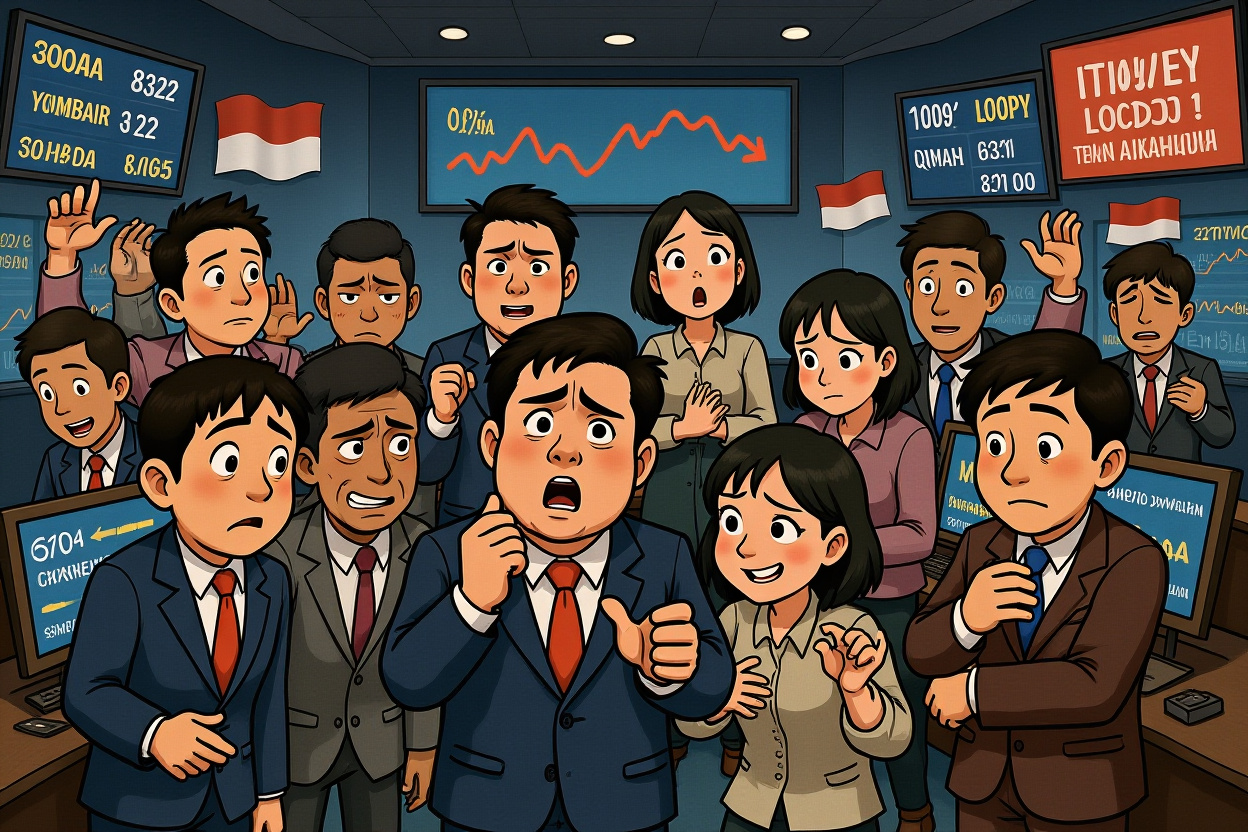Indonesia’s financial markets were rocked by a severe and simultaneous downturn in both equities and the currency, a phenomenon often referred to as a ‘twin market crash.’ This sudden turmoil sent shockwaves through Southeast Asia and raised alarms among global investors about emerging market stability. Here’s a breakdown of what happened, why it matters, and how it might affect the broader economic landscape.
– A sharp, unexpected drop in both the Jakarta Composite Index and the Indonesian rupiah occurred within a short timeframe.
– The event was triggered by a combination of domestic policy uncertainty and external economic pressures.
– Regional markets, particularly in Southeast Asia, showed signs of contagion following the crash.
– Investors are reassessing exposure to emerging markets amid heightened volatility.
– Central bank interventions and government responses are under close scrutiny for their effectiveness.
The Trigger: What Sparked Indonesia’s Twin Market Crash
Indonesia’s sudden market meltdown didn’t happen in a vacuum. It was ignited by a perfect storm of internal and external factors that eroded investor confidence almost overnight.
Domestic Policy Shifts and Their Impact
Recent changes in fiscal and monetary policies created uncertainty. For instance, unexpected regulatory adjustments in commodity exports and public spending plans left markets jittery. When investors sense unpredictability in policy direction, capital flight often follows, exacerbating sell-offs in both stocks and the currency.
Global Economic Pressures</h3
Rising U.S. interest rates and a stronger U.S. dollar put pressure on emerging markets like Indonesia. As the dollar appreciates, currencies like the rupiah weaken, making foreign debt more expensive to service. This dynamic frequently leads to dual market declines, as seen in this episode.
Mechanics of a Twin Market Crash
A twin market crash involves a correlated plunge in both the stock market and the national currency. This section breaks down how these two components interact during a crisis.
Currency Depreciation and Equity Sell-Offs
When the rupiah loses value rapidly, foreign investors often exit Indonesian stocks to cut losses or avoid further depreciation risk. This sell-off pressures equity prices downward, creating a vicious cycle where currency weakness and stock declines feed into each other.
Role of Foreign Investment Flows
Indonesia relies heavily on foreign capital for liquidity. Sudden outflows, driven by global risk aversion or local instability, can trigger a twin market crash. Data from Bank Indonesia shows that foreign holdings in government bonds and equities significantly influence market stability.
Regional Contagion and Global Implications
Indonesia’s market turmoil didn’t stay within its borders. Neighboring economies felt the ripple effects, highlighting interconnected vulnerabilities in emerging markets.
Southeast Asian Market Reactions
Stock exchanges in Thailand, Malaysia, and the Philippines saw dips as investors reassessed regional risk. Currencies like the Thai baht and Malaysian ringgit also faced downward pressure, though less severe than the rupiah’s drop.
Broader Emerging Market Concerns
This event underscores broader issues facing emerging economies, including dependency on foreign capital, commodity export volatility, and susceptibility to global monetary shifts. For more on global economic trends, refer to the World Bank’s latest reports.
Historical Context: Lessons from Past Market Crashes
Indonesia has experienced similar crises before, notably during the 1997 Asian Financial Crisis. Comparing past and present helps identify patterns and preventive measures.
The 1997 Crisis vs. Today
In 1997, currency devaluation and banking collapses led to a deep recession. Today, Indonesia’s stronger foreign reserves and more robust banking regulations provide some buffer, though vulnerabilities remain.
How Policies Have Evolved
Post-1997 reforms included better fiscal discipline and financial oversight. However, recent events show that external shocks can still test these safeguards.
Investor Strategies in Volatile Markets
For those navigating such turbulence, adapting investment approaches is crucial. Here are actionable insights for managing risk during a twin market crash.
Diversification and Hedging
Spreading investments across geographies and asset classes can mitigate losses. Currency hedges, such as forward contracts, may also protect against forex volatility.
Monitoring Central Bank Actions
Bank Indonesia’s response, including interest rate adjustments or market interventions, can signal recovery potential. Investors should watch for policy cues that might stabilize markets.
Government and Institutional Responses
Indonesian authorities moved quickly to address the crash. Their actions offer a case study in crisis management.
Immediate Measures Taken
Bank Indonesia intervened in forex markets to support the rupiah and provided liquidity to banks. The government also reaffirmed commitment to fiscal stability to restore confidence.
Long-Term Structural Reforms</h3
To prevent recurrence, policymakers are discussing deeper reforms, such as reducing reliance on foreign debt and boosting domestic investment. For ongoing updates, follow Indonesia’s Ministry of Finance announcements.
Indonesia’s twin market crash serves as a stark reminder of the fragility in emerging economies. While short-term measures may stabilize markets, sustainable growth requires addressing structural weaknesses. Investors and policymakers alike must prioritize resilience against global shocks. Stay informed with real-time data and expert analysis to navigate these complex dynamics effectively.




